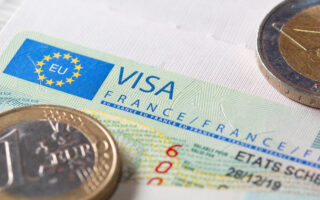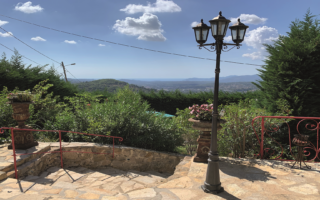New tax rules benefit buyers
Private buyers are no longer liable for the VAT on the purchase of a property in France. Matthew Cameron explains why
Understanding the French equivalent of VAT – Taxe sur la Valeur Ajout�e or TVA – has never been easy. The rules which applied, especially regarding immoveable property, were complex and not always clear. They have, however, changed since 11 March 2010 and it would appear that the reform was rushed because of pressure coming from Brussels. Indeed it seems that the former French position might have not complied with European regulations.
The new basis of the TVA immobili�re in France is that the tax is always payable, without exception, by the seller. In the past the purchaser could be liable for the TVA, for example when a Soci�t� Civile Immobili�re was buying a plot of land in order for a new build.
According to the new rules, a difference is made between professional developers or property dealers liable for TVA as part of their usual activities, and private sellers, mainly meaning individuals selling a house or land. (Anyone buying under a leaseback scheme would be considered as a commercial property buyer, and must become registered for TVA purposes in relation both to the purchase and the subsequent rental scheme.) There is also a difference made between purchasers liable for TVA as part of their usual activities and purchasers not liable for TVA, ie individuals purchasing a house or land.
Building plot changesA new way to establish when a piece of land must be treated as suitable for development – terrain � b�tir – has also been set out. Before March 2010 a piece of land was treated as suitable when the purchaser was planning to build a new construction. Under the new rules the same plot will be considered as a terrain � b�tir if, according to the local planning rules applying in the area, it would be possible to build on it. The purchaser’s intentions are no longer taken into account.
Under the old rules, when an individual not liable for TVA was buying a building plot, TVA could not apply. Now TVA may apply on the sale of a plot of land if the seller is a professional liable for TVA.
If the purchaser is an individual not subject to TVA, and the sale is subject to TVA, he will have to pay the usual stamp duty calculated at a rate of either 5.09% or 0.715%, depending on the situation.
If the seller is not subject to TVA and sells a property to a purchaser not subject to TVA, TVA will not apply even for newly built properties (ie if a property is sold within the first five years following completion of the construction work). Before the new rules came into force an individual, not subject to TVA, selling the property he had just built had to pay TVA, the tax being deducted from the selling price. Even if it was possible to set against the tax payable at the time of the sale the tax paid during the construction process, the result could be costly for the seller, in particular when he was at the same time also liable for capital gains tax.
There is however one exception to this new rule when the property being sold was purchased as an immeuble � construire vente en l’�tat futur d’ach�vement – VEFA. In this case if the property was purchased as an immeuble � construire, a sale within the five-year period following completion of the construction will be subject to TVA even if seller and purchaser are not usually liable for TVA, the seller having the right to deduct from the TVA to be paid from the selling price the TVA paid on the purchase.
For many transactions involving individuals not subject to VAT, the new rules should not really change the situation dramatically, expect for the purchase of a building plot (a terrain � b�tir) from a professional developer or if the property is being sold within the five-year period following completion of the work.
One question is likely to be asked: could the new rules have any consequences on what happened before March 2010? It seems that the French government decided to amend the law on short notice because various regional administrative courts (tribunaux administratifs) had to consider cases of people trying to challenge the old position. A claim was also to be processed against France before the European Court. The fact that France acknowledged, even tacitly, that the old rules did not comply with European regulations might give grounds to someone to challenge the way his purchase/sale was fiscally treated. However, according to article 2 of the French Code civil, a law cannot apply retrospectively. Therefore it is not because the rules have changed that one would automatically be entitled to contest what happened in the past, especially if what was done complied with the old principles. It is too early to know how these cases will be treated.
New rules
The new rules can be highlighted by a few examples:
Seller – professional building company in France subject to TVA selling a property off plan to a purchaser – Mr Smith, English individual – not subject to TVA:
Seller: liable for TVA to be taken from selling price
Purchaser: liable for stamp duty at a rate of 0.715%
Seller – Mr Smith, English individual not subject to TVA having built a new house and selling it to a purchaser – Mr Jones, English individual not subject to TVA and who is buying the property for his retirement in France, within the first five years following completion:
Seller: no TVA applicable – new rule
Purchaser: stamp duty at a rate of 5.09%, no TVA
Seller – Mr Smith, English individual not subject to TVA selling a property bought off plan to a purchaser – Mr Jones, English individual not subject to TVA and who is buying the property for his retirement in France, within the first five years following completion of the work:
Seller: liable for TVA to be taken from selling price
Purchaser: liable for stamp duty at a rate of 0.715%
In the last example, if the same property is sold after the first five years following completion of the work, TVA does not apply.
Fact File
Ashton Graham www.ashtongraham.co.uk/france
Share to: Facebook Twitter LinkedIn Email


